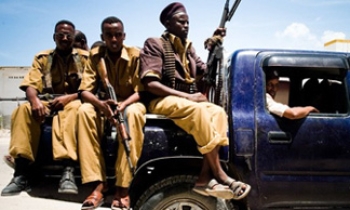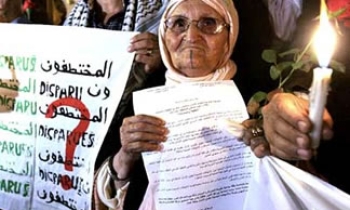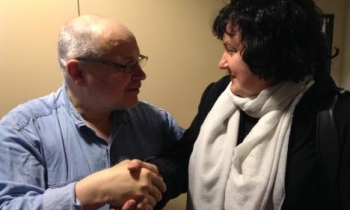BOSTON (Reuters) - Two days after her abduction in Baghdad, American journalist Jill Carroll desperately pleaded with her captors to believe she was not hiding an electronic chip somewhere in her body to communicate with U.S. Marines.
In a personal account of her 82 days held captive in Iraq, Carroll said a leader of the militant group accused her of secretly tipping off U.S. forces to her location, possibly through a transmitter embedded in her body.
"I am the leader of this little group, and I'm a little more sophisticated than my friends here," the man had told her. "Do you have something in your body, something to send a signal to your government?"
The Christian Science Monitor, the newspaper for which Carroll reported from Baghdad and now works in Boston, published the account on Tuesday as the third installment in an 11-part series on its Web site (www.csmonitor.com).
Carroll said the man told her a story of a friend held at the U.S. prison in Abu Ghraib who claimed Marines had planted an electronic tracking device in his body.
"If you have this in your body, tell me now and we'll go and take it out," the man said, speaking in English.
"No, I don't have this! I don't have this!" she said she had shouted nearly through tears. "Bring a woman. We'll go in the bathroom right now, and I'll take all my clothes off and she can look at me and see that I don't have anything."
Carroll said the man waved his hand and said that wouldn't prove she didn't have a transmitter implanted in her body.
"Then he changed the subject, apparently letting go of the issue. ... I left the room to go eat with the women and children. But it was clear that this suspicion was not going away."
Carroll, who was snatched on January 7 after trying to interview a Sunni politician, said she also faced pressure to convert to Islam on her second day of captivity and was filmed by her captors that day for her first propaganda video.
RIGOROUSLY COACHED.
To shoot the video, she was led to a room that soon filled with men carrying AK-47s and rocket-propelled grenades.
"They were holding up a sheet, moving it here and there, trying to find the best light. There were maybe 10 men in the room, and each had an opinion; it was 'no, no, no, here'," and then "no, no, no, over here'," she wrote.
She said she was rigorously coached.
"I was to say that they were mujahideen (holy warriors) fighting to defend their country, that they wanted women freed from Abu Ghraib prison and the U.S. military, particularly the Marines, were killing and arresting their women and destroying their houses. And I must cry, on cue," she said.
"It took me a while to work up to the crying part. But I had a lot of pent-up emotion and stress, and by the time we finished, I was crying for real."
She said she later learned Al Jazeera television only aired about 30 seconds of the video without audio and that her tears were never broadcast. She said the leader wanted to shoot it again, with her crying and talking longer and saying how the Marines were "destroying things, destroying their homes."
"They had a special enmity for the U.S. Marines. What they didn't know -- and I hoped they would never find out -- was that I had been embedded with the Marines for five weeks in November and December.
"Back then, the lieutenant of the platoon I was with had said that if anyone ever kidnapped me, a platoon of Marines would come to my rescue. So, in the retake of the video I made a point of emphasizing the word 'Marines'.
"I said, 'Their government isn't of the Iraqi people. It is a government brought by the American government and by the MARINES.' I wanted them to know I was thinking of them. Come get me, guys. Please, come save me."









